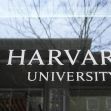President Donald Trump has again threatened to revoke Harvard University’s tax-exempt status, intensifying a standoff between his administration and the nation’s wealthiest university. In a Truth Social post on Friday, Trump wrote, "We are going to be taking away Harvard's Tax Exempt Status. It's what they deserve!"
This latest statement follows an earlier post from April in which Trump accused the university of promoting "political, ideological, and terrorist inspired/supporting 'Sickness?'" He suggested Harvard should be treated as a political entity and taxed accordingly if it continued on what he described as a radical ideological path.
At the center of the dispute is the administration’s claim that Harvard has failed to protect Jewish students on campus. The White House has issued a list of demands it insists the university must meet to retain its nonprofit status and federal funding. In response, Harvard’s president rejected the administration’s terms, calling them illegal and an overreach into the autonomy of private educational institutions. The university contends that the administration is attempting to dictate what it teaches, who it hires, and whom it admits.
In retaliation, the government froze more than $2.2 billion in federal funding to the university. While Harvard, like most U.S. colleges and universities, qualifies as a tax-exempt nonprofit organization, federal law prohibits the executive branch from using the Internal Revenue Service to target specific taxpayers.
Legal Limits on Executive Influence Over the IRS
Under federal law, the IRS operates as an independent agency within the Department of the Treasury, governed by statutes that strictly limit political interference. One of the key safeguards is found in the Internal Revenue Code, which prohibits executive branch officials from directing IRS actions against specific individuals or organizations for political reasons.
Section 6103 of the Internal Revenue Code mandates that tax return information be kept confidential and outlines strict limitations on access and use. Additionally, longstanding norms reinforced by the IRS Restructuring and Reform Act of 1998 further enshrine the agency’s political independence.
Any attempt by the White House to influence tax enforcement based on ideological disagreements may violate both statutory protections and constitutional principles of due process and equal protection.
Harvard has filed a lawsuit against the Trump administration, arguing that the funding freeze and threats to its tax-exempt status violate the First Amendment and lack proper administrative procedure. The case has been fast-tracked, with an expedited trial scheduled to begin this summer.
First Amendment Concerns
Legal scholars have raised serious First Amendment concerns over the administration’s actions. The Constitution prohibits the government from punishing individuals or institutions based on their speech or viewpoint. By threatening to revoke Harvard’s tax-exempt status and freezing federal funding over alleged ideological leanings or the university’s response to campus protests, the administration may be violating core protections of free expression and academic freedom.
Noah Feldman, a professor at Harvard Law School, stated, in a Boston Globe article, that the administration’s threats violate Harvard’s First Amendment rights by targeting it for its protected speech.
Benjamin Eidelson, also a Harvard Law professor, in the same article, called the government’s actions "blatantly unconstitutional," arguing that punishing a university based on its perceived ideological views undermines core democratic principles.
Lily Batchelder, a professor at NYU School of Law and former Treasury official, warned in Time Magazine that allowing the executive branch to weaponize tax policy sets a dangerous precedent and could lead to broader political abuse.
Courts have long held that retaliatory government action in response to protected speech, including expressive conduct by educational institutions, is unconstitutional. Harvard’s lawsuit argues that the administration’s efforts amount to viewpoint discrimination, a particularly egregious form of First Amendment violation that the Supreme Court has repeatedly ruled against. The university contends that its curriculum, hiring practices, and campus policies fall squarely within the domain of protected expression.
Meanwhile, some Democratic lawmakers are calling for an investigation into whether the Trump administration is improperly pressuring the IRS, potentially in violation of laws designed to insulate tax enforcement from political influence. Critics argue that using tax policy as a punitive measure for perceived ideological dissent undermines constitutional protections.
Harvard, which holds the largest university endowment in the world at over $50 billion, has long been a lightning rod in political debates over elite academic institutions. The outcome of this litigation could set a precedent not only for how the government interacts with private universities but also for the limits of executive power in regulating tax-exempt entities.






